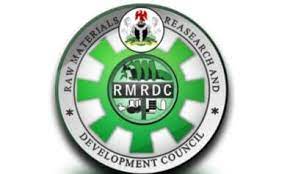The Raw Materials and Research Development Council (RMRDC) has established a poison observation and treatment Centre i.e. Toxicology Information Centre (TIC), in the FCT. The Centre is expected to serve as data based and process point for all toxic and hazardous chemicals as well as curb unnecessary deaths in the country; BINTA SHAMA reports.
Introduction
Research has shown that toxicology is a field of science that helps understand the harmful effects that chemical substances or situations can have on people, animals and the environment.
Studies have further shown that three stages of mineral development, exploration, mining and processing have caused different types of environmental damages including ecological disturbance, destruction of natural flora and fauna, pollution of air, land and water, instability of soil and rock masses, landscape degradation and radiation hazards.
The environmental damage in turn results in waste of arable land, as well as economic crops and trees. Since much of the damage is inevitable, if the minerals must be developed, both the government and the mineral industry must be involved in taking precautionary and remedial measures that can minimize the ill-effects of mineral development. Emphasis should shift from waste disposal to waste minimization through sorting, recycling of reagents and water.
While the government should provide the regulatory legislation with appropriate sanctions, the mineral-producing companies are expected to carry out mandatory precautions, remedies or compensation for the damages done.
Emergency call Centre for toxicology victims
At the sensitisation seminar to establish the TIC, the Director General of the RMRDC, Professor Hussaini Doko Ibrahim, represented by the Director of Industrial Plant and Equipment Design and Development, Emmanuel Kwaya, said the main objectives of the service are to provide toxicological information about toxicology and continuous systemic collection of data that will assist in curbing the hazards emanating from contact with harmful raw materials.
“This is a landmark event, in that something very important is about to happen. We are trying to set up a Toxicology Information Centre which is absolutely necessary not only to the mining sector but to other sectors. We are trying to create awareness and at the same time create a data centre because most centres in the world have centres like this where they get information in respect to ministry activities. The centre would also serve as an initial place of call for individuals and communities who are exposed to toxic and hazardous materials.
“Distinguished ladies and gentlemen, it is exciting to be here today with my Honourable Ministers and our distinguished guests from the international community and representatives of relevant agencies of government. It is noteworthy that today Nigeria is making another great stride in its efforts to address the issue of dearth of data in some of the areas that have direct bearing on our livelihood.
“The Council after series of thought provoking and eventful ideas has come to the decision that she needs to intervene in the part of the country’s data gaps by providing authentic and reliable data on Chemical Toxicity with the establishment of a Toxicology Information Centre, the first of its kind in the country. In this regard, it is important for us to examine where we are coming from, what informed the establishment of the Toxicology Information Centre by the Raw Materials Research under the newly rebranded Federal Ministry of Innovation, Science and Technology. And what the Centre portends for Nigeria.
“In not-so-distant past, the mishaps in some artisanal mining communities in Nigeria became a source of concern, especially with government efforts to diversify the economy through the potentials of the mineral/mining sector following its consideration as one of the diversification options for the country. Memories can hardly forget a major outbreak of lead poisoning in mainly children recorded in Zamfara State, Nigeria in March 2010, which was said to be related to the processing of lead-rich ores for extraction of gold. No single event illustrates the danger of mineral and chemical contamination more than this tragic event in northwestern Nigeria.
“It was supposed to be the World Environmental Day celebration on 5 June 2010, but the inhabitants of gold-bearing communities Anka and Bukkuyum Local Governments in Zamfara State had a different fate in stock for them – that of lead poisoning incidence that killed hundreds of citizens of the state. Since 2010, it is estimated that more than 600 children have died from lead poisoning in Zamfara state and hundreds more have been left with brain damage and physical disabilities as a result of hazardous artisanal gold mining.”
Fear of toxicology
“The death toll that bedeviled local mining sites in Zamfara and Niger state evokes fear of ‘resource curse’ and attracted global attention to Nigeria. The incidence in the affected communities of Niger and Zamtara States presents a wake-up call to set the stage not only for massive education sensitization stakeholders, but also for proper monitoring on the application of best practices and the introduction of appropriate technology that can help minimise casualties in small scale/ artisanal mining in Nigeria. Experts reported that lead poisoning as in the case of Zamfara can persist in the environment for up to 20 years. While lead for instance is known to bio-accumulate and propagate within the ecosystem, giving rise to cancer causing cells popularly called ontogeny, There are also other long-term health problems such as permanent learning and behavioural problems and brain damage associated with harmful minerals and chemicals used processing of minerals such as cyanides and mercury in gold mining and processing.
“In addition to these cases above, I recall with nostalgia the confronting issues of absence of data in Nigeria in most thematic areas, and demand for data by our global partners, especially during my travels outside the country for official engagement. Some of the questions outsiders usually ask is to know the chemicals that are available for use in the country, the regulations and what measures are in place for the risk assessment. All these have greatly informed the establishment of the first ever Toxicology Information Centre (TIC), which the Council under the Innovation. Science and technology ministry is poised to tackle the challenges of hazardous mineral contamination of the soil, water bodies and mineral processing effluents, etc.
“In consideration of the important role that data on toxicology as a result of exposure to chemicals can play in addressing the challenges, the Centre is intended to serve as advice and a data gathering system suitable for providing verifiable sources of toxicological information that can support structure-activity relationship studies. Successful utilisation of information from the Centre is intended to lead to project development that will expand the system. It is our eamest belief that establishment of the Centre will reduce morbidity and mortality from poisoning and enable the community to make significant savings in health care costs, provide the much-needed information on toxicological contaminations and improve the overall Image of Nigeria amongst the comity of nations.”
Shedding more light on the establishment of TIC, the Project Lead of the Centre, Prof. Anoka Njan said that the Centre became inevitable because many Nigerians had been stripped of toxic chemical substances that lead to numerous casualties. Assuring that the centre will play an important role in the prevention of toxicity.
“With this Centre, people can know where to run to report when they are in danger. It is going to be an advisory centre to aid people in need of support. Nigeria has become exposed to toxicology and poisoning issues. They are exposed to various chemicals and when they are exposed they don’t have anywhere to go to. What we have done now is to build up a Centre where they can call in. When people are poisoned and ask what to do, they can be directed to this Centre. We have trained doctors and Pharmacists in toxicology because people can come to them as trained Professionals to handle such cases of poison. This is what Nigerians have been waiting for.”
In a chat with Blueprint, a Director in the Council Egnr Obasi Ettu said the toxicology division should be one of the major units of a department in any organisation with particular mandate on promoting production, especially in the area of human safety. He added that having it in the mining sector is a welcome idea and that it will definitely go a long way, commending the Council for taking such a giant stride.




